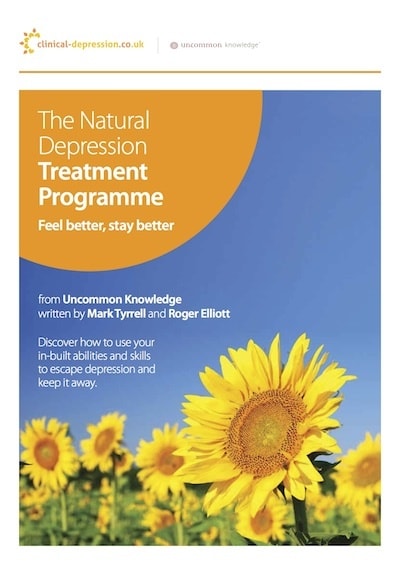- How breathing exercises can help you with depression and anxiety
- How you can practice meditation
- Conclusion and recommendations
The benefits of deep breathing are manifold. The range from boosting the immune system to delaying the aging process in an individual. People sometimes underestimate the importance of deep breathing as they believe it’s just an exercise to reduce weight.
There may be recommended product links in this post. If you click one of these links and buy, the small commission I recieve will help support me run this with depression. Thank you!
Breathing exercises aid the release of stress hormones and eject cortisol that can have drastic positive effects on reducing the stress levels in our body. We think that breathing is one of the involuntary functions performed by our body and is considered a necessity of life.
Breathing is a process of invigorating oxygen into blood cells and discharges carbon dioxide. That’s why deep breathing is necessary for facilitating the exchange of carbon dioxide and oxygen. Any hindrance will induce panic attacks, fatigue, anxiety, and emotional turmoil.
Any hindrance will induce panic attacks, fatigue, anxiety, and emotional turmoil. This article will give you an insight into how deep breathing will assist in reducing depression and anxiety:
Breathing Exercises for Anxiety and Panic Attacks:
There are two types of breathing techniques which consists of different functions. Thoracic breathing is a state in which a person breaths from his chest and his level of anxiousness increase due to his shallow breathing.
It blocks oxygen to the brain as a result. You might not be aware of this situation. Chest breathing has a negative effect on our body as it increases the dizziness in a person, arouses physical sensations and blood clotting. The response is in the form of panic attacks and stress.
On the other hand, Diaphragmatic breathing is a type of deep breathing exercise. This is the correct way to supply oxygen to your body.
If you observe a newborn closely, you will note that he is breathing with his abdomen. It relaxes your mind and body. It amplifies your emotional response to the extent that it eradicates the feelings of stress, anxiety, and depression.
Shallow breathing is not an ideal state as it increases the stress in our body which gives a signal of fight mode to our brain. This game of mind and body revolves around the supply of oxygen to the blood. It becomes a vicious circle for a person and makes the psychological conflict difficult.
That is why abdominal breathing is emphasised and recommended by the medical practitioners.
Breathing Techniques to Sooth our Brain:
Some of the renowned techniques to decrease anxiety and stress are related to deep breathing. A gentle breath from your abdomen stimulates your brain and provides calm as well as produces soothing hormones which fight the negative thoughts in your body. It comes with a passage of time as this circle is rewarding.
We will teach you one of the simplest exercises which can enable you to eradicate the anxiety and depression from your life. You can try the below exercise to reward yourself:
- Lie down straight on your cushion and close your eyes.
- Put one of your hands on your stomach to feel the rise and fall when you breathe in and out.
- Feel the natural flow of your body which will relax your mind into tranquility. You will have an idea of breathing going in and out.
- Once oxygen supply is abundant in your body, your heart will beat efficiently. The relaxed state of mind is due to the lowered blood pressure and your mind thinks clearly even when you are in hibernation mode.
Our mistake is that we breathe incorrectly when sitting all day long in front of our laptops at work. It disrupts the natural flow of our chest, lungs, and shoulder. It raises the strain on your upper body.
How Deep Breathing works with our Metabolism:
Breathing is directly proportional to the powerful muscles of our body. It works with our lungs and intercostal muscles between our ribs. It gives support to our secondary muscles of upper ribs, shoulders, and neck.
Anxiety and stress induce a static state of mind and we unintentionally keep on sitting in one position for a longer span of time. It becomes a hurdle for the primary muscles of our abdomen to work in coordination with our body requirements. That is why the muscles on our shoulders become stressed as they are not up for the burden.
This continuous position leads to chronic stress and pain which spreads to cause headaches and fatigue. It is now an established fact that breathing from your chest is an invitation to diseases and attacks to our body. A simple method of meditation gives us relaxation and peace to our body.
Meditation can be done by practicing the following steps:
- Close your eyes and sit straight with back on the chair and hands on your lap.
- Concentrate on the flow of your breathing going in and out. Try to feel the sensations and stay in touch with the reactions of your body.
- Your mind might lose the focus so revamp it to pay attention to your breathing.
- The moment of mindfulness is when you stop concentrating on your breathing and it is automatically controlled from your abdomen.
- You can open your eyes once you achieve this state to manage your surroundings.
Conclusion:
You can improve your depression and stress while practicing meditation (Goyal et al 2014). The feelings of unhappiness and emptiness will be controlled and mental clarity will prevail to increase the productivity in your life. As per Chinese Monks “peace is just a breath away from your body and mind.” So breathe more to stay active and healthy.
Recommendations:
I want to help you to use meditation against depression, anxiety and stress so here is my personal choice of the tools and resources you need to get started…enjoy them!
Discover why depression messes with your sleep, energy and emotions – and get the tools you need to rapidly feel better


 Karl Perera is a fully qualified Life Coach, Teacher and Author of
Karl Perera is a fully qualified Life Coach, Teacher and Author of